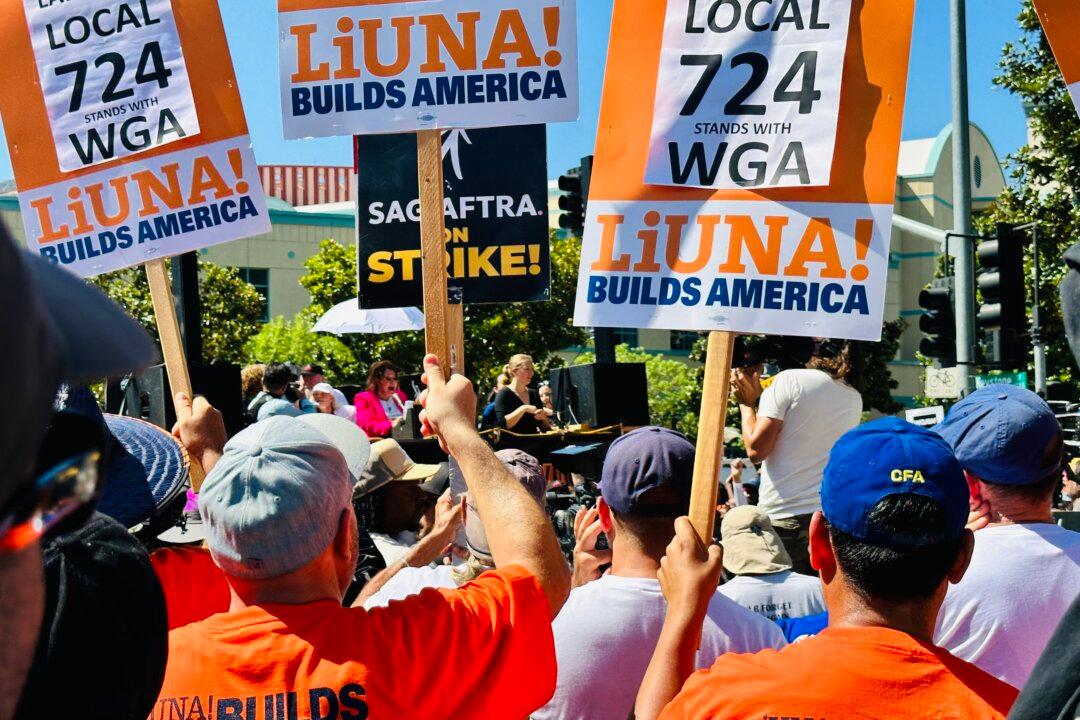LOS ANGELES—Contract talks between the striking Writers Guild of America (WGA) and studio representatives are set to continue Sept. 24 as negotiations near what industry observers say is the “final phase” toward potentially ending a monthslong strike that has crippled the entertainment industry, according to multiple media reports.
The two sides met Saturday from about 10 a.m. to 6 p.m.—joined by attorneys who were said to be reviewing the language and “finer points” of what is expected to be a three-year contract.





